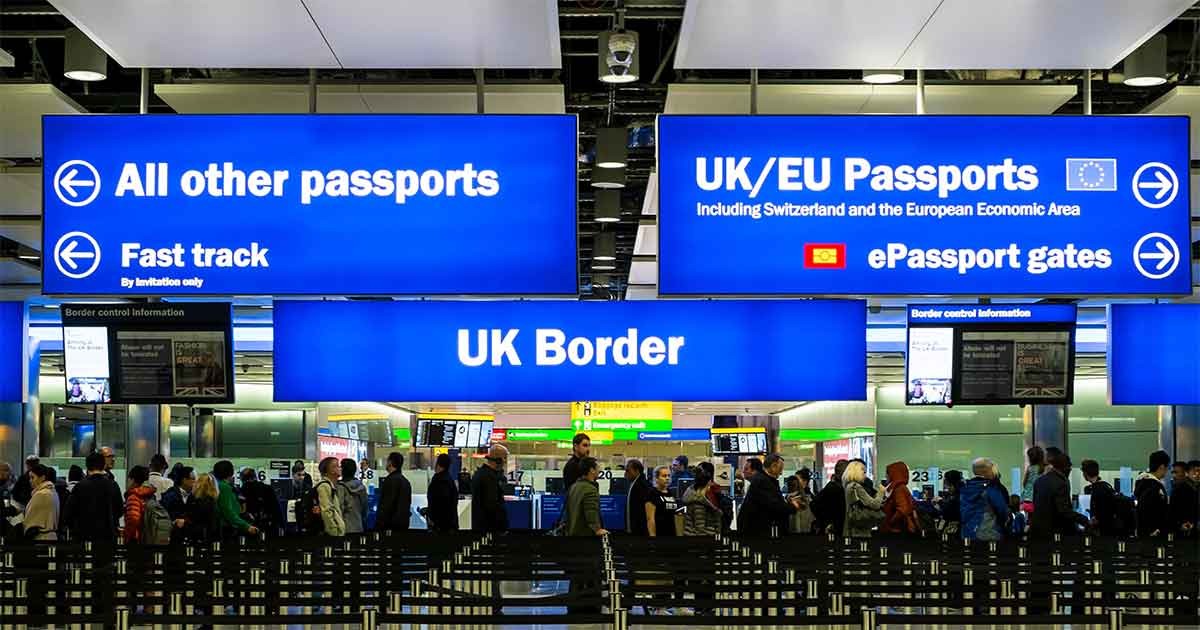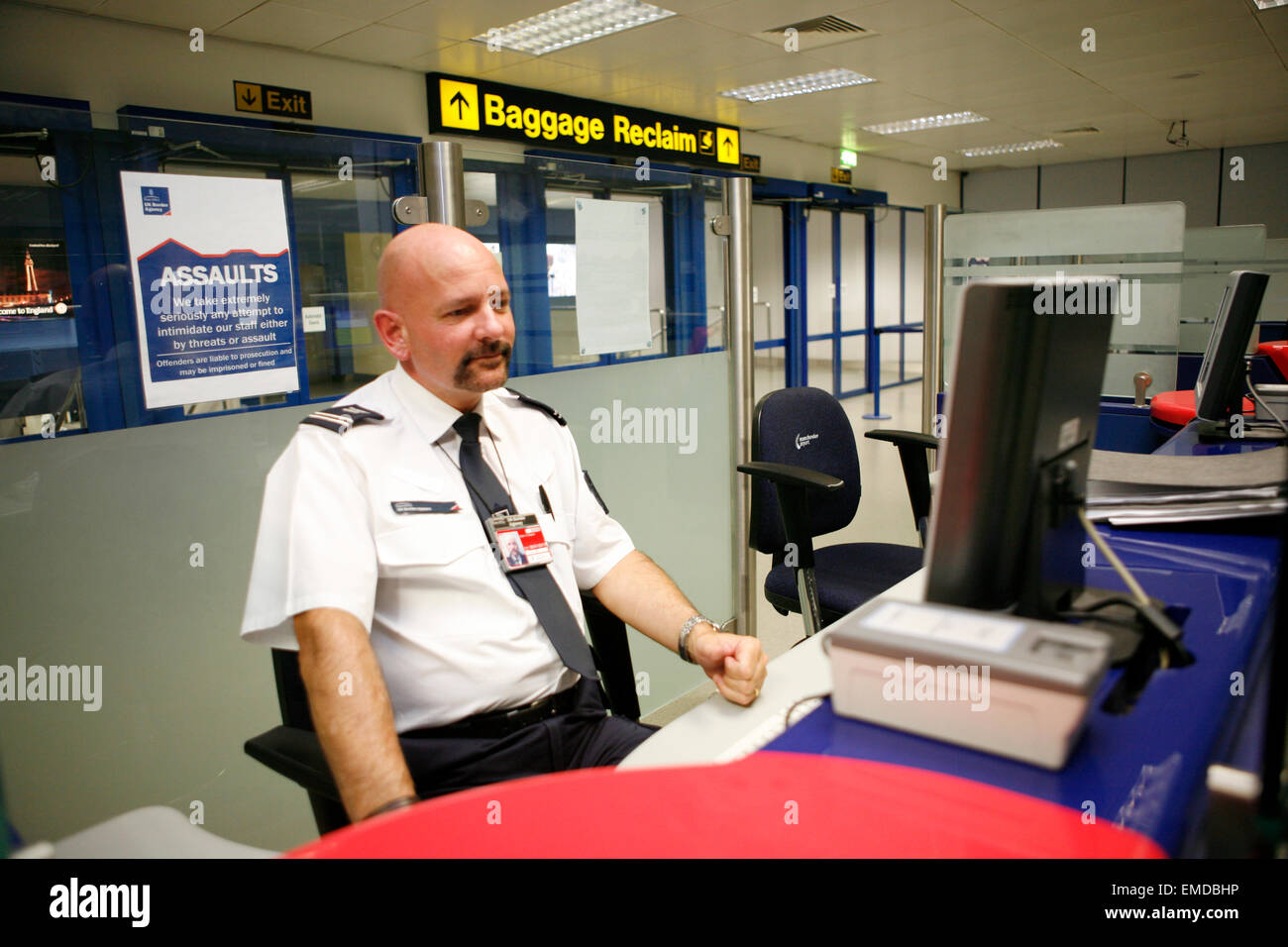Border Control Uk
Posted : admin On 5/24/2019Travellers stopped at UK borders may be denied the right to consult a lawyer for up to an hour and officers will be allowed to listen in to private consultations under sweeping new security powers, the Law Society has warned.
Proposals in the counter-terrorism and border security bill will undermine the traditional right to confidential legal advice for those stopped at airports and docks, the organisation which represents solicitors throughout England and Wales fears.
A free inside look at UK Border Agency salary trends. 539 salaries for 95 jobs at UK Border Agency. Salaries posted anonymously by UK Border Agency employees.
But the Home Office says powers in the bill do not differ from those already in place in other legislation.
The controversial bill has already passed through the House of Commons and has now gone up to the Lords, where it is likely to be subject to close scrutiny.
Powers delaying access to a lawyer and permitting police to listen in to legal consultations during border stops have not been publicised previously partially because the bill contains so many other complex legal details.
Section 23 of part two of the bill explicitly states that anyone detained in England, Wales or Northern Ireland “is entitled … to consult a solicitor as soon as is reasonably practicable, privately and at any time”.
It then goes on, however, to qualify that basic right by saying that “a police officer of at least the rank of superintendent may authorise a delay” in permitting a detainee to consult a solicitor.
Border queue times at Heathrow fail to meet targets
The bill states that, in certain circumstances, a detainee’s right to consult a solicitor is subject to it being “only in the sight and hearing of a qualified officer”.
Uk Border Control Youtube

The new powers allow border guards to stop travellers without suspicion that they have committed an offence. If an individual is formally detained on suspicion of committing an offence, they must be cautioned as such and read their rights.
Christina Blacklaws, the president of the Law Society of England and Wales, said: “Everyone under suspicion of a crime should be able to access confidential legal advice, particularly when facing serious charges.
“The idea people could be questioned for an hour before being able to get legal advice runs against all the usual standards of justice. Even after an hour, a suspect would have to proactively request a solicitor, rather than being offered legal support.
“The government needs to ensure everyone suspected of a crime is entitled to a solicitor and properly informed of their legal rights. Even when a solicitor is present, the bill currently only allows the suspect to consult them when an officer is listening in. The confidential nature of communication between a lawyer and their client has long been affirmed as a fundamental human right.”
Parliament’s joint committee on human rights (JCHR) has also pressed the government for changes. “There is no right to a solicitor if questioned for under one hour before being detained,” it observed in July. “Following this, in some circumstances, a person may only consult their solicitor in the presence of an officer.”
It added: “Powers [in the bill] unjustifiably interfere with the right to timely and confidential legal advice, and therefore ultimately interfere with the right to a fair trial (if prosecutions are eventually brought). These provisions do not comply with the requirement that the law must contain sufficient safeguards to ensure that powers will not be exercised arbitrarily.”
The Home Office directed the Guardian to the government’s previous response to concerns raised by the JCHR.
It said the bill would allow a police officer of at least the rank of superintendent to authorise a delay in permitting the detainee to consult a solicitor where the officer believes access to a lawyer could lead to a range of consequences, including interference with evidence.
Other reasons could be injury to another person, alerting others that they are suspected of an indictable offence or hindering the recovery of property obtained by an indictable offence.
The government said detainees must only consult a solicitor in the “sight and hearing of a qualified officer” in exceptional cases and this would only be allowed with the approval of an assistant chief constable.
This restriction is designed to stop a detainee using legal privilege to pass on instructions to a third party, either through intimidating their solicitor or passing on a coded message, the government said.
The proposals are not “new or novel”, the government said, as they exist in code C of the Police and Criminal Evidence Act and schedule 8 of the 2000 Terrorism Act.
A Home Office spokesperson said: “The UK faces a sustained threat from hostile state activity and it is essential that police officers have the power to question individuals at UK ports and the border area to determine whether they pose a threat to our national security.
“The schedule 3 code of practice will mirror that of schedule 7, where an examining officer should, where feasible, permit an individual being examined but not detained, access to legal counsel if they request it.”
Thousands of air passengers have accidentally bypassed UK border checks after being sent the wrong way upon arrival to the UK.
Responsibility for directing passengers arriving to the UK on international flights to immigration for passport checks and security clearance lies with airline carriers and operators.

Misdirection occurs when passengers reach a part of the airport beyond border security, without having their passports checked or security cleared. This can happen when the incorrect doors are opened at the arrival gate or when an airline operator sends passengers to the wrong place.
We’ll tell you what’s true. You can form your own view.
From 15p€0.18$0.18USD 0.27 a day, more exclusives, analysis and extras.
Read more
- Inside travel: UK border control
Border Control Uk Contact Number
Figures obtained by the Home Office reveal that 2,328 passengers were misdirected in 2017, compared with 1,364 in 2016 – an increase of 70 per cent.
The Home Office maintains that misdirected passengers are identified, however, and the necessary checks conducted. Doing so retrospectively adds an “unnecessary administrative burden”.
Ministers are considering whether to proceed with plans to impose fines upon airports and airlines of up to £50,000 for failing to direct passengers to border controls. The existing Immigration Act 2016 already enables them to exercise this power.
A spokesperson for the Airport Operators Association described border security as a “top priority”.
“We are committed to working with airlines, ground handlers and Border Force to continue on our track record.
Read more
“We do not believe that the proposed civil penalty should be part of that ongoing work as it is disproportionate in light of the numbers of passengers involved,” the BBC reported.
“The security of our border is paramount”, the Home Office insisted in a statement.

Acknowledging the “relatively small but unacceptable” number of misdirected air passengers, the Home Office said: “We are determined to eradicate these errors and believe a civil penalty is a vital tool in ensuring this happens.”